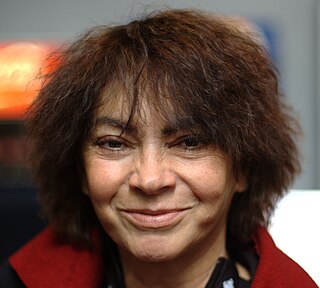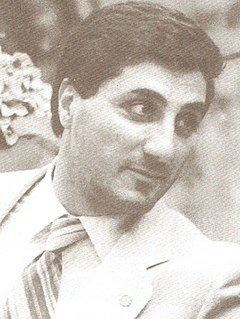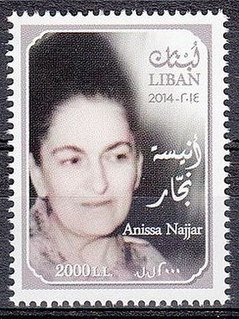
The Kataeb Party, also known in English as the Phalanges, is a Christian political party in Lebanon. The party played a major role in the Lebanese Civil War (1975–1990). In decline in the late 80s and 90s, the party slowly re-emerged in the early 2000s and is currently part of the March 14 Alliance.

The Lebanese Civil War was a multifaceted civil war in Lebanon resulting in an estimated 120,000 fatalities. There was also an exodus of almost one million people from Lebanon as a result of the war.

Samir Farid Geagea is a Lebanese politician and militia commander who has served as the executive chairman of the Lebanese Forces since 1986.

The Guardians of the Cedars (GoC) are a far-right ultranationalist Lebanese party and former militia in Lebanon. It was formed by Étienne Saqr and others along with the Lebanese Renewal Party in the early 1970s. It operated in the Lebanese Civil War under the slogan: Lebanon, at your service.

The Amal Movement is a Lebanese political party and former militia affiliated with the Shia sect. Founded by Musa al-Sadr in 1974, the party has been led by Nabih Berri since 1980. During the Lebanese Civil War, Ali Hussein Berbari Al Jaafar was the right hand of Musa al-Sadr and disappeared with him in Libya.

The Lebanese Forces is a Lebanese Christian-based political party and former militia during the Lebanese Civil War. It currently holds fifteen of the 64 Christian seats in Lebanon's parliament and is therefore the second-largest Christian party in parliament.
The siege of Tel al-Zaatar, or Massacre of Tel al-Zaatar, was an armed siege of Tel al-Zaatar, a fortified, UNRWA-administered refugee camp housing Palestinian refugees in northeastern Beirut, that ended on August 12, 1976 with the massacre of at least 1,500 people. The siege began in January of 1976 with an attack by Christian Lebanese militias led by the Lebanese Front as part of a wider campaign to expel Palestinians, especially those affiliated with the opposing Palestine Liberation Organization (PLO) from northern Beirut. After five months, the siege turned into a full-scale military assault in June and ended with the massacre in August 1976.

Télé Liban is the first Lebanese public television network, owned by the Lebanese government. It was a result of a merger of the privately run Compagnie Libanaise de Télévision (CLT) and Télé-Orient. TL is the current Lebanese member of the European Broadcasting Union (EBU).

Etel Adnan is a Lebanese-American poet, essayist, and visual artist. In 2003, Adnan was named "arguably the most celebrated and accomplished Arab American author writing today" by the academic journal MELUS: Multi-Ethnic Literature of the United States.
Fouad Abou Nader is a Lebanese Christian politician and former leader of the Lebanese Forces. A grandson of the Kataeb Party founder Pierre Gemayel, Abou Nader became a Kataeb party activist and head of the elite Kataeb troop called the "BG" and later on head of the Lebanese Forces after the union of various Christian military groupings. After an internal revolt in the Lebanese Forces led by Elie Hobeika and Samir Geagea against his leadership, he relinquished his power to them refusing to what he considered a fratricide venture.

Jocelyne Saab was a Lebanese journalist and film director. She is recognized as one of the pioneers of Lebanese cinema. A reporter, photographer, scriptwriter, producer, director, artist and founder of the Cultural Resistance International Film Festival of Lebanon, Saab focused on the deprived and disadvantaged – from displaced peoples to exiled fighters, cities at war and a Fourth World without a voice. Her work is grounded in historic violence, and in an awareness of the actions and images required to document, reflect on and counteract it.
Lisa Suhair Majaj is a Palestinian-American poet and scholar. Born in Hawarden, Iowa, Majaj was raised in Jordan. She earned a B.A. in English literature from American University of Beirut and an M.A. in English Literature, an M.A. in American Culture and a PhD in American Culture from the University of Michigan. In 2001, she moved to Nicosia, Cyprus. Her poetry and essays have been widely published. In 2008, she was awarded the Del Sol Press Annual Poetry Prize for her poetry manuscript Geographies of Light. "In difficult times, poets and writers have always provided lifelines."

Bachir Pierre Gemayel was a Lebanese militia commander who led the Lebanese Forces, the military wing of the Kataeb Party in the Lebanese Civil War and was elected President of Lebanon in 1982.
Lebanese Turkmen, also known as the Lebanese Turks, the Turkish Lebanese minority, are people of Turkish ancestry that live in Lebanon. The historic rule of several Turkic dynasties in the region saw continuous Turkish migration waves to Lebanon during the Tulunid rule (868–905), Ikhshidid rule (935–969), Seljuk rule (1037–1194), Mamluk rule (1291–1515), and Ottoman rule (1516-1918).

The Army of Free Lebanon – AFL or "Colonel Barakat's Army", also designated Armée du Liban Libre (ALL) and Armée du Colonel Barakat in French, was a predominantly Christian splinter faction of the Lebanese Army that came to play a major role in the 1975–77 phase of the Lebanese Civil War.

Anissa Rawda Najjar was a Lebanese feminist and women's rights activist. She was a co-founder and longtime leader of the Village Welfare Society.
Roger Assaf is a Lebanese playwright, director and actor.

Jacqueline Massabki was a Lebanese writer and lawyer born in Beirut, Lebanon. She died there on 1 September 2015.
Najma Khalil Habib is a Palestinian writer. She obtained a doctorate in philosophy from the University of Sydney in Australia. She was awarded a scholarship from the Australia Council for the Arts, as well as The Gibran Khalil Gibran International Prize issued by the Association for the Revival of Arab Heritage in Australia. In addition, she received a certificate of appreciation from the General Federation of Palestine Workers, Australia Branch.













